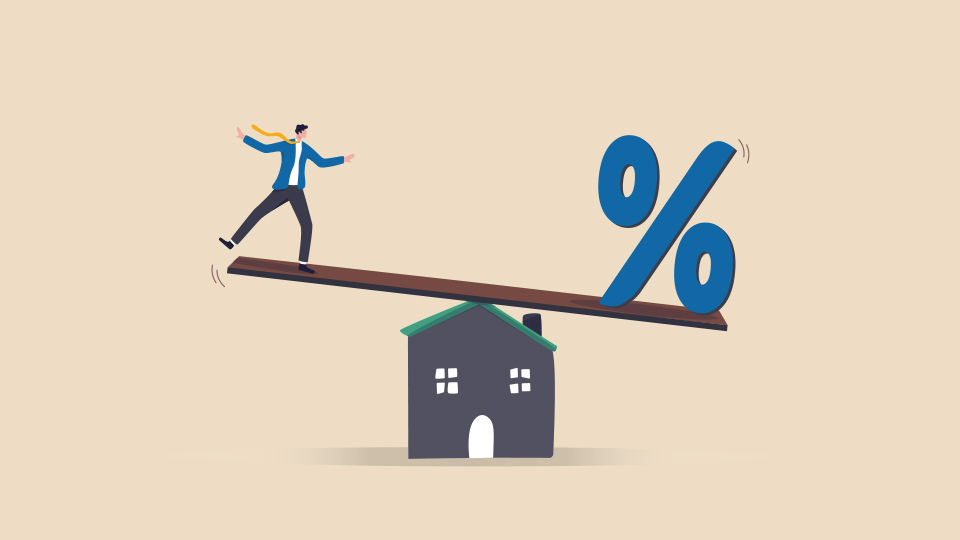Does capital gains tax (CGT) apply for knock-down rebuilds?
If you’re considering a knock-down rebuild, it’s important to know if you will be liable for capital gains tax. Here are the details.
April 17, 2023

Mortgage holders can finally enjoy some financial reprieve after 10 months of back-to-back interest rate hikes.
At its April meeting, the Reserve Bank of Australia (RBA) hit pause on its record run of interest rate rises.
Holding interest rates steady at 3.6 per cent, it’s the first time the RBA has left the cash rate on hold since May last year.
Totalling 350 basis points, the consecutive hikes were the fastest tightening cycle by the central bank in more than 30 years after interest rates hit emergency lows of 0.1 per cent during the pandemic.
The pause will give the RBA board time to assess the impact of its aggressive approach, which has added nearly $1000 to the monthly repayments on the average $500,000 home loan.
“The board recognises that monetary policy operates with a lag and that the full effect of this substantial increase in interest rates is yet to be felt,” RBA Governor Philip Lowe said.
“The decision to hold interest rates steady this month provides the board with more time to assess the state of the economy and the outlook, in an environment of considerable uncertainty.”
The rate respite has been applauded by industry groups, with David Alexander, a policy adviser at the Australian Chamber of Commerce and Industry, saying small business owners will be “breathing a sigh of relief”.
CoreLogic’s Tim Lawless said the rate hold could signal renewed confidence in the property market.
“We know that consumer sentiment and housing market activity have a close relationship, so any upwards movement in spirits could see more buyers and sellers returning to the market, although we would need to see sentiment lift materially before returning to average levels,” Mr Lawless said.
Governor Lowe has warned another rate increase could be needed to curb Australia’s inflation, which softened in February to 6.8 per cent from December’s peak of 8.4 percent. But that’s still much higher than the RBA’s target range of 2–3 per cent.
“The board expects that some further tightening of monetary policy may well be needed to ensure that inflation returns to target,” Mr Lowe said.
“High inflation makes life difficult for people and damages the functioning of the economy. And if high inflation were to become entrenched in people’s expectations, it would be very costly to reduce later, involving even higher interest rates and a larger rise in unemployment.”
The Australian Bureau of Statistics will release its March quarter CPI figures on April 26, not long before the RBA’s next meeting on May 2.
Some economists, like the Commonwealth Bank’s head of Australian economics Gareth Aird, predict at least one more rate rise is on the horizon thanks to rising rents and utility costs and the strength of the labour market, with unemployment sitting at about 3.5 per cent – a near 50-year low.
“The budgets of many home borrowers will be under considerable strain over the coming year,” Mr Aird said.
David Bassanese, chief economist at Betashares, cautioned the RBA has “left its finger firmly on the rates trigger”.
If you’re struggling with interest rate hikes and inflation and need to review your finances, contact the advisers at LDB Group.
Call (03) 9875 2900 or fill in the contact form below.
If you’re considering a knock-down rebuild, it’s important to know if you will be liable for capital gains tax. Here are the details.
If you have a HELP debt, there may be benefits to paying off your debt before June 1, regardless of whether that is in part or in full.
The federal government will introduce an additional tax to superannuation earnings on balances of more than $3 million.

Our team is taking a short break, with the office closed from 4pm Thursday 19th December 2024, reopening on Monday 6th January 2025. The Property department will be available for urgent matters and will operate in a limited capacity between 2nd and 5th January.
